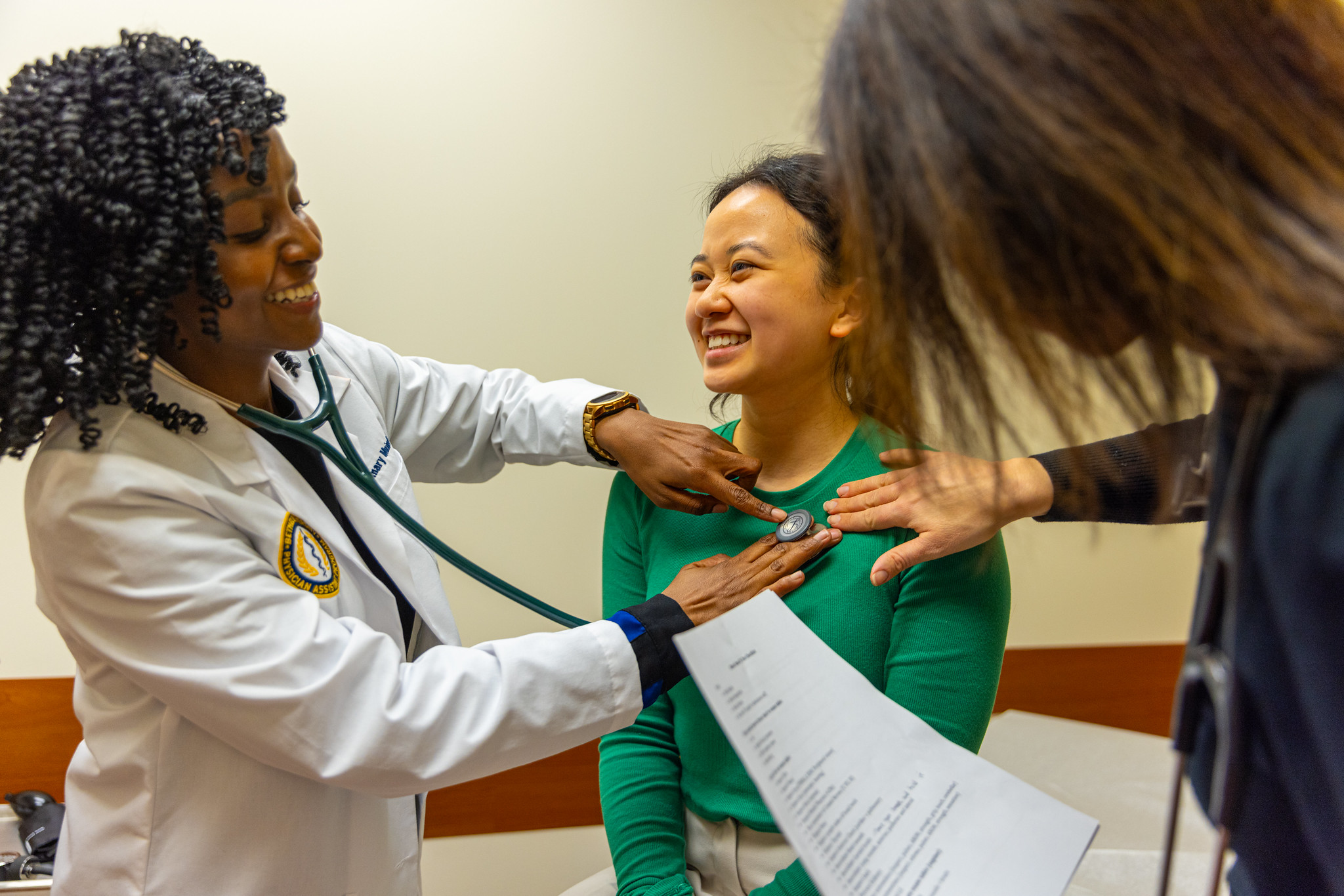Are you considering a career in healthcare? The medical field is changing rapidly, and there are some great reasons to become a physician assistant (PA). You might be asking yourself, “why be a PA instead of a doctor?” We talked with Christy Hanson, director of Bethel’s Master of Science (M.S.) in Physician Assistant program, to learn some of the benefits of becoming a physician assistant:
Physician assistants have the flexibility to work in different contexts and disciplines.
A PA provides services as varied as healthcare itself. PAs help address the need for medical professionals—especially in underserved communities—by playing a pivotal role in comprehensive patient care within clinics, hospitals, public health, government services, and medical missions. The Bureau of Labor Statistics (BLS) projects a 27% increase in PA roles in the United States by 2032.
“Physician assistants are fully licensed medical providers who can diagnose, treat, and follow up with patients in virtually any area of medicine,” – Program Director Christy Hanson
You’ll enter the workforce quicker than a physician.
By becoming a physician assistant, you can bypass the long, expensive education required of physicians. You can start in the medical field quicker, with less debt.
Build a fulfilling career with direct patient care.
Get equipped to diagnose and treat patients with compassion, making the most of your comprehensive skill set. You’ll experience lots of satisfaction from making a tangible difference in patients’ lives.
The salary will be very competitive!
Becoming a physician assistant is a cost-effective pathway to a fulfilling career with a strong salary. The BLS reports a median annual salary of $126,010 in 2023.
Physician assistants can specialize–without committing to lengthy residencies.
Whether you want to serve in primary care, emergency medicine, pediatrics, women’s health, surgery—or you’re not quite sure what discipline is for you—physician assistant programs can give you the credentials you need to excel. You can even switch specialties based on your season of life, interests, and community needs, Hanson explains.
Collaborate closely with a multidisciplinary team.
PAs often work with a team of physicians, nurses, nurse practitioners, and other physician assistants—and new Optimal Team Practice standards have removed the requirement of a supervising physician in Minnesota and many other states. If you enjoy working in a team-based, collaborative environment that puts patient needs first, you might thrive as a physician assistant!
“This starts at Bethel! What we hear from our students consistently is that when they come here, they feel known and cared for. We have a tight-knit community. The student body—and also staff and professors—form an amazing team in an amazing atmosphere. The faculty goes so far above and beyond to take care of students and ensure they’re successful.” – Program Director Christy Hanson
Maintain work-life balance.
In some contexts, physician assistants have more predictable hours and responsibilities than other medical roles. Though demand is increasing, there may be opportunities for part-time or flexible schedules.
Continue lifelong learning and growth as a practitioner.
Stay on the cutting edge of the medical field through ongoing professional development and specialization. Physician assistants often participate in community health initiatives, and you could even influence public health and education on a larger scale.
Now more than ever, our world needs excellent, values-driven healthcare providers. Bethel’s Master of Science (M.S.) in Physician Assistant program is known for its rigorous curriculum and emphasis on holistic care, offering top-quality clinical instruction within a supportive community.

